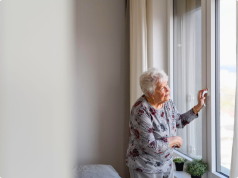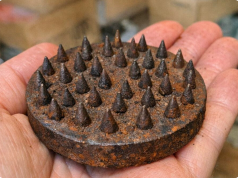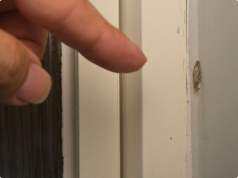There’s a quiet, everyday debate that divides households, couples, and even best friends:
👉 When is the best time to shower — in the morning or at night?
For many, the morning shower is sacred — a steaming wake-up call that washes away sleep and jumpstarts the day.
But what if the real magic happens at bedtime?
Enter the nighttime shower — not just a routine, but a ritual of renewal.
And according to medical experts, it might just be the healthier, smarter choice.
The Case for Showering at Night
Dr. Giuseppe Aragona, a general practitioner and medical advisor at Prescription Doctor, puts it simply:
“A nighttime shower can help relax your body before sleep, soothe muscle tension, and rinse away the dirt and stress of the day.”
While morning showers are popular for their energizing effect, Dr. Aragona argues they don’t necessarily win when it comes to overall health and hygiene.
Here’s why showering before bed might be the ultimate act of self-care.
1. You Sleep Cleaner — Literally
Think about your day:
You’ve walked through city streets, touched door handles, sat in public transit, sweated through work or the gym, and been exposed to pollen, pollution, sweat, and bacteria.
If you don’t shower before bed, all of that — plus the oil and dead skin cells that build up — gets transferred to your sheets, pillowcases, and pajamas.
Night after night, this leads to:
- Dirty bedding (even if you wash it weekly)
- Clogged pores
- Facial breakouts and acne
- Irritated, itchy skin
A nighttime shower removes this invisible layer of grime, so you’re not sleeping in a petri dish.
2. Better for Your Skin and Hair
Your skin repairs itself at night — but it can’t do its job properly if it’s clogged with dirt and oil.
Evening showers:
- Clear pores before the skin’s natural regeneration begins
- Prevent scalp buildup from sweat and environmental pollutants
- Reduce the risk of dandruff, folliculitis, and scalp irritation
And if you’re using a gentle cleanser and moisturizing afterward, you’re giving your skin the clean slate it needs to heal and hydrate overnight.
3. Promotes Deeper, More Restful Sleep
A warm (not hot) shower 1–2 hours before bed can significantly improve sleep quality.
Here’s how:
- The warm water raises your body temperature
- When you step out, your body cools down rapidly
- This drop mimics the natural temperature dip that signals your brain: “Time to sleep.”
Studies show this thermoregulatory effect can help you fall asleep faster and enjoy deeper, more restorative sleep — especially for people with insomnia.
Plus, the act of showering can be meditative, helping to:
- Release muscle tension
- Calm the nervous system
- Signal the end of the day
It’s like a pajama party for your nervous system.
4. Reduces Allergy and Asthma Triggers
If you suffer from allergies or asthma, nighttime showers can be a game-changer.
Pollen, dust, pet dander, and mold spores cling to your hair and skin during the day.
When you go to bed without washing them off, you’re inhaling allergens all night long.
A quick rinse removes these irritants, reducing:
- Nighttime sneezing
- Itchy eyes
- Congestion
- Asthma flare-ups
For allergy sufferers, washing your hair at night can make a huge difference.
5. You Wake Up Feeling Just as Fresh (Without the Rush)
“But I love waking up feeling clean!” — a common morning shower argument.
Here’s the good news:
If you shower at night, you can still wake up feeling fresh — without the morning scramble.
And let’s be honest:
Morning showers often mean:
- Less time to enjoy them
- Skimping on hair washing
- Higher water and energy use (heating water in a rush)
An evening shower lets you take your time, relax, and still enjoy clean skin and hair in the morning.
Keep It Short & Cool: Dermatologist’s Advice
While the benefits of a nighttime shower are clear, how you shower matters just as much.
Dermatologist Emma Amoafo-Mensah warns:
“Many people are spending too long in the shower. The optimal time should be under ten minutes.”
Why?
- Long showers strip your skin of natural oils
- Hot water worsens dryness and irritation
- Both can disrupt your skin’s protective barrier
✅ Her tips for a healthy shower:
- Keep it under 10 minutes
- Use lukewarm water, not scalding hot
- Use gentle, fragrance-free cleansers
- Moisturize immediately after drying off
Final Thoughts: Nighttime Showers — A Small Change with Big Rewards
You don’t have to give up your morning routine to benefit from a night shower.
But if you’re looking for a simple way to:
- Improve sleep
- Protect your skin
- Reduce allergies
- Wake up refreshed — without the rush
…then switching to an evening shower might be one of the easiest upgrades you’ll ever make.
So tonight, turn on the water.
Let the warmth wash away the day.
And climb into bed — not just clean, but truly ready to rest.
Because the best way to end your day?
Clean body. Clear mind. Peaceful sleep.






